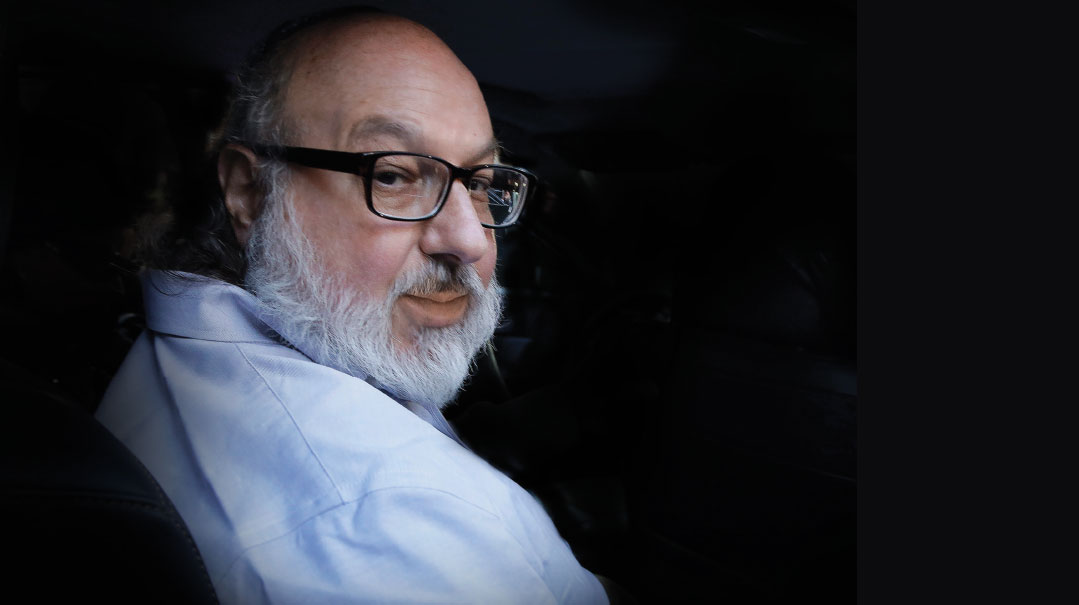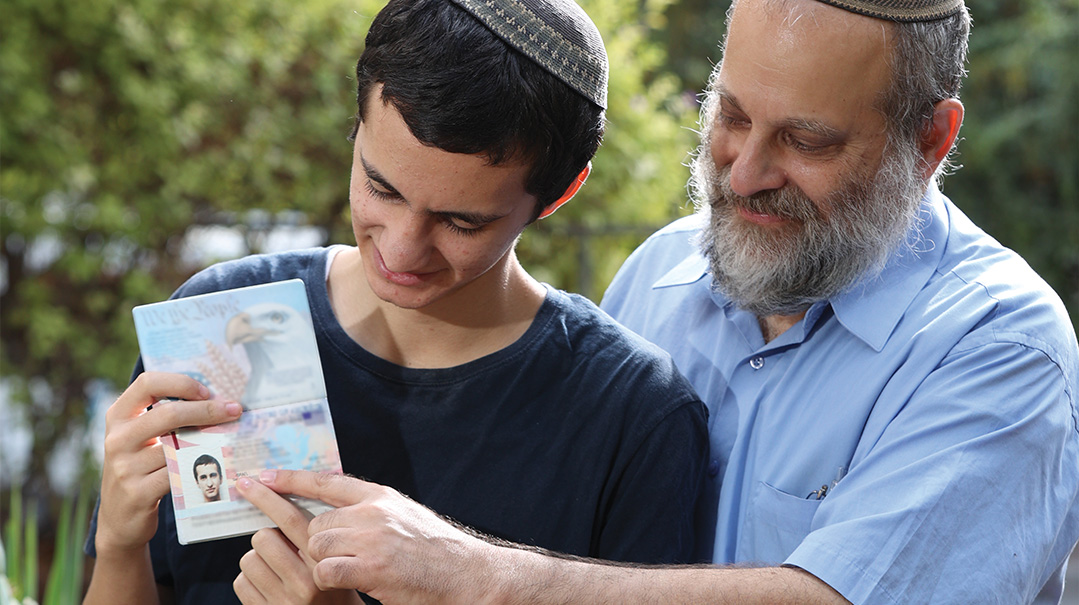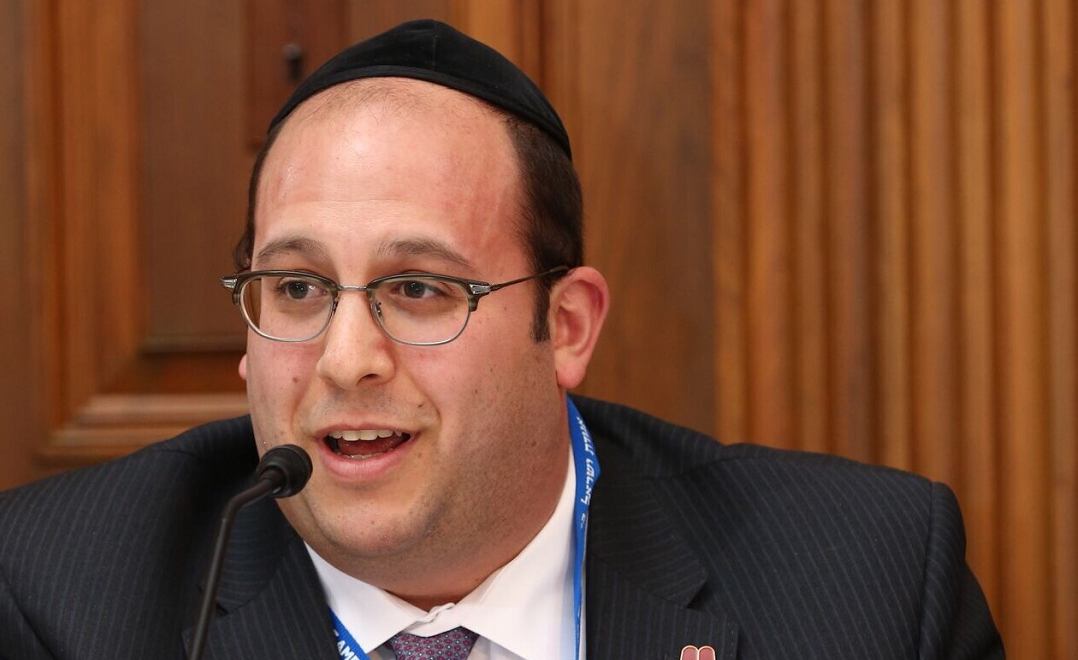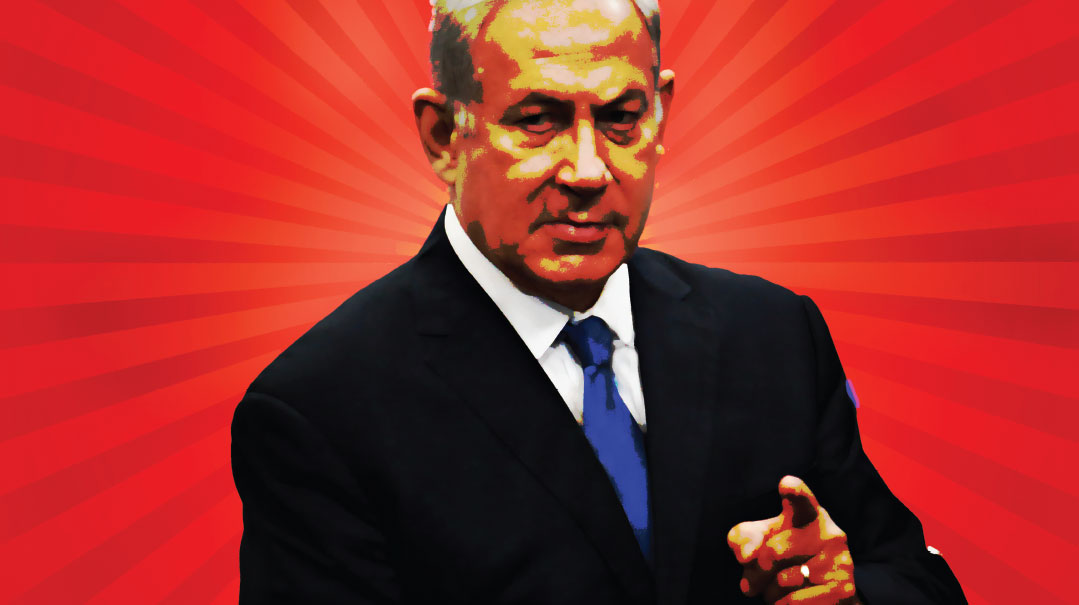A Loss, But Not A Defeat
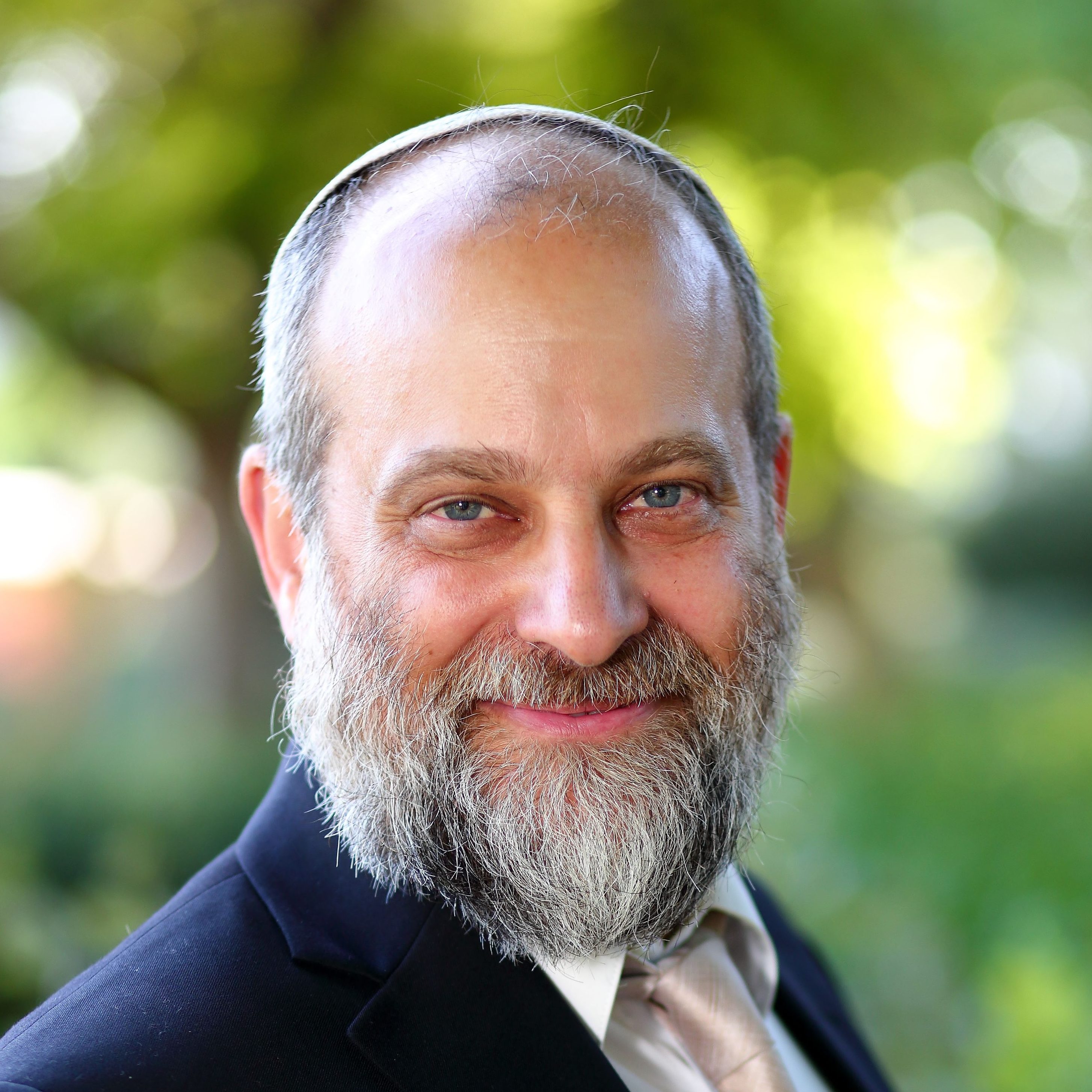
In June 2015, 12-year-old Menachem Zivotofsky lost his longstanding battle. In a tensely awaited ruling, the Supreme Court affirmed the executive branch’s exclusive right to grant formal recognition to a foreign sovereign. For Menachem, this means his American passport will still list his place of birth as “Jerusalem” — but not “Israel.” For millions of Jews, it means a troubling refusal on the part of the American executive to recognize the eternal link between Jerusalem, the Holy Land, and its people. And for his father Ari, it also means the deeply disappointing end of a personal struggle. But along the way, he gained fascinating insights into the legal system and heartening support from Jews of all stripes.
In this exclusive first-person account, he retraces the long journey.
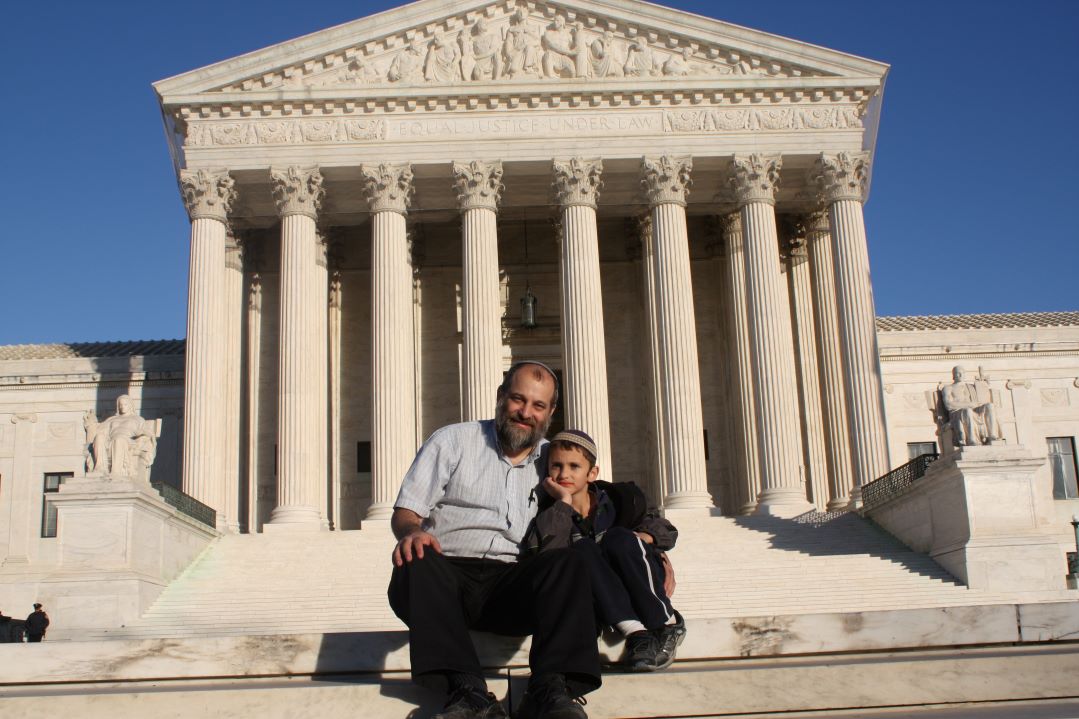
Y
erushalayim. We face it during prayer and invoke its name several times a day. On Yom Kippur and Pesach, we explicitly state our dreams of gathering there for holy convocations. It has been the heart and soul of the Jewish People for 3,000 years, ever since King David established it as our eternal Holy City. Since 1967, we have had the privilege, not enjoyed by Jews for millennia, to call Jerusalem the capital of a Jewish state. While the special status of Jerusalem to the Jewish People is clear to most readers of Mishpacha, it seems that much of the world doesn’t agree with us.
Four years ago, our efforts to have the word “Israel” appear instead of “Jerusalem” on our son’s US passport reached the United States Supreme Court. The case has been part of our family now for 12 years, sometimes more on the front burner, more often than not on the back one. For the last several months, while awaiting this final decision of the court, it has been front and center, however, as everyone we met inquired how the case was progressing.
The decision was quite “overdue” as cases argued even months after ours had already been decided. So together with the court watchers, we have been anxiously monitoring the media every Monday, when the court issues its decisions. And now the Justices have issued their opinions.
We lost, but we don’t feel defeated. In a 6-3 decision, the justices determined that the president of the United States has the exclusive power to recognize foreign nations, including how Jerusalem is listed in the passports of every American born in Jerusalem. Even though the court has ruled, there is still hope. Congress can still help us fight this battle, and in the months and years to come, we hope that they will. In addition, public pressure can be exerted on the president, to use his authority to right a longstanding wrong.
Passport Control
Throughout this process we gained quite an education about the legal and political systems and the points of contact between them.
Ultimately, our case came down to this: Congress passed a law, and the president signed it but he refused to implement it, arguing that it was an unconstitutional breach of his executive powers. We were simply asking the court to enforce the law. It is important to note that the courts in this case were not explicitly ruling about the sovereignty of Jerusalem; they were ruling about the constitutionality of a law passed by Congress.
But in order to understand this long, long battle, some background is necessary.
Although the United States was the first country to recognize the State of Israel in 1948, the US has never recognized Israel’s sovereignty over Jerusalem. Rather, the US maintains that the status of Jerusalem — including the western section — is in dispute and subject to negotiation. This policy manifests itself in several ways. The US Consulate in Jerusalem — which processes American reports of birth abroad and American passports — reports directly to the State Department rather than to the embassy in Tel Aviv. And the 50,000 US citizens who were born in Jerusalem over the years may think they were born in Israel, but their US passports and other official documents list their place of birth simply as “Jerusalem.”
While we were vaguely aware of this policy, when our son was born 12 and a half years ago in Jerusalem, a conversation with our attorneys, Nathan Lewin and his daughter Alyza Lewin — experts in Supreme Court and federal appellate litigation — resulted in us becoming much more knowledgeable on the subject. They explained that shortly before Menachem was born, in September 2002, the US Congress overwhelmingly passed a law (the Foreign Relations Authorization Act, Fiscal Year 2003) that allows a US citizen born in Jerusalem to request from the State Department that his birthplace be listed as “Israel” in addition to Jerusalem.
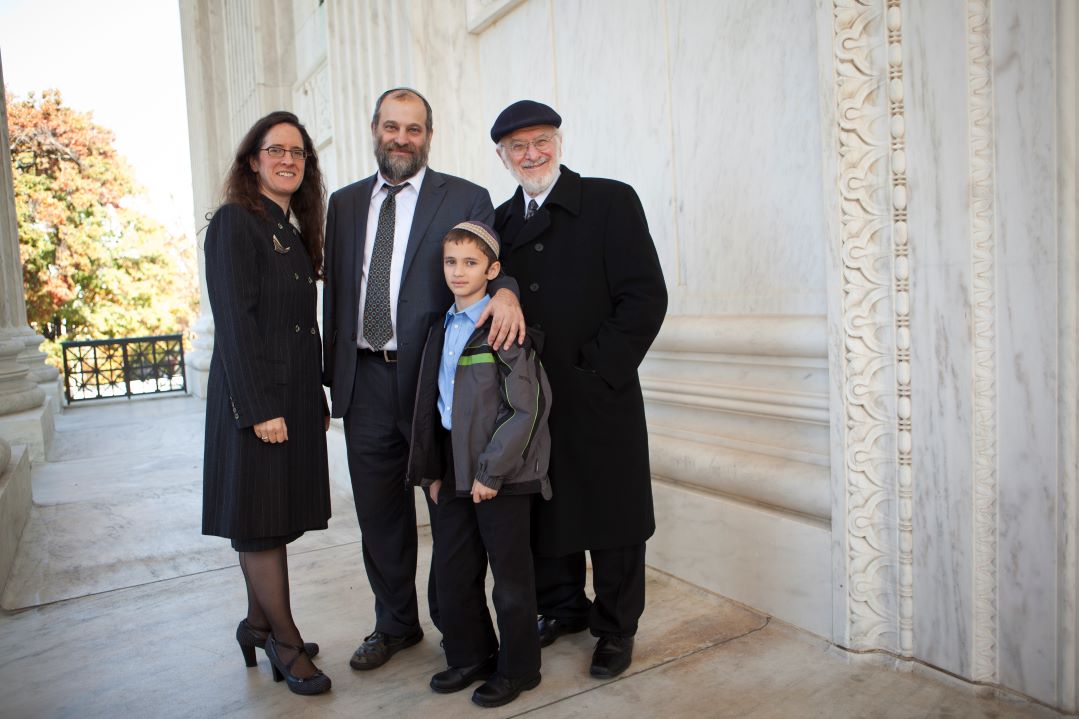
Section 214(d) of that law states:
(d) RECORD OF PLACE OF BIRTH AS ISRAEL FOR PASSPORT PURPOSES. — For purposes of the registration of birth, certification of nationality, or issuance of a passport of a United States citizen born in the city of Jerusalem, the Secretary shall, upon the request of the citizen or the citizen’s legal guardian, record the place of birth as Israel.
The Lewins asked whether we might be interested in testing the law. Having previously discussed among ourselves the injustice of this US policy, we jumped at the opportunity to fight it. That was the beginning of a 12-plus-year journey that has taught us about the US legal system, the near wall-to-wall support among the Jewish People for Jerusalem, and the tenacity and legal acumen of one of the most famous Washington legal teams. While there have been many ups and downs, they and we were committed to continue the battle until the end.
First Tests
The case was originally filed in the United States District Court for the District of Columbia where, in September 2004, Judge Gladys Kessler acquiesced to the government request to summarily dismiss the case. Her contention was that we lacked legal standing, since there had been no harm to Menachem and his passport was fully valid. Thus, according to her, we had no legal grounds on which to sue. Not to be dissuaded, the Lewins appealed the decision to the Court of Appeals for the D.C. Circuit. Fortuitously, I was in D.C. for a conference during November 2005 and was able to attend the hearing. I was shocked to see the seriousness that the US government accorded to the case. On our side was the father-daughter legal team of Nathan and Alyza Lewin. On the other side were no less than eight (!) government lawyers from both the departments of Justice and State.
I was floored by the many resources the government was devoting to this issue. And they were willing to try any and every argument to win this case. (For instance, at one point they tried arguing that the word “shall” in the statute meant it was discretionary rather than obligatory.) In February 2006, the Court of Appeals reversed the lower court ruling and remanded the case to the District Court, so it was in Judge Kessler’s lap again. She clearly did not want to touch this hot potato and in September 2007 summarily dismissed us again, this time holding that the case was a nonjusticiable, political question and therefore not in the purview of the courts to decide. Back to the D.C. Circuit we went, but this time, in July 2009, they affirmed the lower court ruling that this was indeed a political, rather than a legal question, and threw us out.
Before the Supremes
We were now poised for our first appearance in the Supreme Court of the United States. What most people do not realize is that the US Supreme Court hears less than 1 percent of submitted appeals, only about 70 cases a year. These are usually cases that they deem to have broader implications. To our great delight, the Court agreed to consider our appeal. When we asked the Supreme Court to review the case, we focused our petition for certiorari (judicial review) on just the “political question” issue decided by the Court of Appeals. In a very unusual move, the Supreme Court agreed to review the “political question” issue but instructed us to brief and argue not only the question of whether our case was justiciable, but also the “merits” of the case — namely whether Congress’s law was constitutional and enforceable.
Ironically, after the Supreme Court heard the merits, it chose not to rule on the merits, concluding that the case was perhaps not as “simple” as originally thought. By a margin of 8-1 the Court held that our case was justiciable, and sent the case back to the Circuit Court to consider the merits. Chief Justice Roberts, who wrote the majority opinion, admonished the lower court. He instructed that: “In general, the Judiciary has a responsibility to decide cases properly before it, even those it ‘would gladly avoid.’…. To say that Zivotofsky’s claim presents issues the Judiciary is competent to resolve is not to say that reaching a decision in this case is simple.”
Attending the hearing was a real lesson in civics. The reverent atmosphere in the court, the seriousness with which the judges took each case, and the overall demeanor in the courtroom of this highest court in the land was something we will always remember.
The Court of Appeals well understood that they needed to rule on the “merits” of the case and not try to avoid a weighty decision. And rule they did. They decided that the law passed by Congress improperly infringed on the president’s right to conduct foreign policy and was thus unconstitutional and unenforceable. The judges of the D.C. Circuit noted that they were constrained by the fact that they were an “inferior” court and had to follow “dicta” in Supreme Court opinions. Although we think they misread the history, they seemed to be blaming the Supreme Court’s language in earlier cases for the result they reached. We again placed our hopes in the Supreme Court and again they agreed to hear the case. This was going to be the final step in the long journey, as they were going to be ruling on the constitutionality and enforceability of the Congressional statute.
Friends United in Justice The Lewins are actually old family friends, but this case has given us a chance to strengthen that bond. On this second appearance our legal team made a bold tactical decision to have Alyza, a rookie, argue the case. And she did so brilliantly, responding to 51 questions fired at her in 30 minutes. Her father sat kvelling as the “second chair” at counsel table, probably the first time in Supreme Court history that a daughter argued with her father as “second chair.”
During this process, we learned some fascinating things about the US State Department. In general, on the passport of a foreign-born US citizen, only the country of birth is recorded. Thus a person born in Paris will have “France” listed as place of birth, and a person born in Montreal will have “Canada.” This is generally true for Israel as well. A person born in Tel Aviv will not have “Tel Aviv, Israel” listed but simply “Israel.”
That said, the State Department recognizes that some people may have sensitivities regarding how their place of birth is listed. Therefore, they permit an Arab-American born in Haifa, for example, to remove “Israel” and list “Haifa” instead of “Israel” if the person finds listing “Israel” offensive. But when it comes to Jerusalem — despite the law enacted by Congress — the State Department refuses to list “Israel” as the place of birth for citizens born in the capital, even if the individual feels strongly and requests that “Israel” be listed.
At all levels of the appeal process, interested individuals and groups are permitted to submit “amicus briefs” (“friend of the court”) on behalf of one of the parties. It is the third party’s opportunity to explain to the court why they are interested in the case and why they think a particular position is correct. In our first appearance before the Supreme Court, numerous Jewish organizations filed briefs on our behalf; no Arab organization filed counter-briefs. Clearly, this was not an issue of real concern to them.
There was one organization that felt a need to come out against our cause: Americans for Peace Now. This truly shocked us, as, even if they did not agree with our position, they could have simply remained silent without having to take an oppositional stand.
The second time around, the reinforcements on both sides were greater. The entire United States Senate filed a joint brief on our behalf defending their right to pass the law. The State of Texas, concerned about the president overstepping his boundaries, filed a brief on our behalf. Numerous professors and legal scholars also filed amicus briefs in support of our position. And of course, many Jewish organizations from across the religious and political spectrum, from the Reform to the Orthodox, supported our case. This time, there was an Arab brief on the other side, along with a brief submitted by a group that calls itself “Torah True Jews” — Neturei Karta.
Our first visit to the Supreme Court also drove home just how hard the Obama administration was fighting the case. While the details of the legal and historical arguments can be seen in the masterful briefs filed by the Lewins, one of our arguments was that if the law was followed, passports of individuals born in Jerusalem and Tel Aviv would both say simply “Israel” and cause no diplomatic tumult. As proof, we submitted several documents. For example, a neighbor of ours showed us the US Consular Report of Death of her father, a US citizen who passed away in Shaarei Zedek Medical Center (the same hospital where Menachem was born). It clearly stated that he died in “Jerusalem, Israel.” A short while after this document was submitted in connection with an amicus brief filed by the Zionist Organization of America, the State Department mailed our neighbor a “corrected” document, with an updated location of just “Jerusalem.” Similarly, the White house website includes numerous photos of American dignitaries visiting their Israeli counterparts. Originally, the captions stated that the meeting took place in “Jerusalem, Israel.” But before our Supreme Court hearing, these websites were sanitized to conform to the official policy. Thankfully, cache copies exist and were submitted in one of the amicus briefs.
Throughout the process, I often thought to myself that the whole campaign was a little surreal. All of these resources were being expended over one word that is rarely seen. It made me realize how significant the words “Israel” and “Jerusalem” are not just to us, but to the world at large. It is truly amazing.
What’s It Worth?
At several points during this long process we wondered whether our pursuit of justice was “good for the Jews.” Maybe it was best not to sue your “best friend.” We understood that the Israeli government could not formally take a position, but we were hoping that they were silently cheering for us from the sidelines. We believe they were. Certainly our friends and neighbors, as well as Menachem’s classmates, were cheering, and not silently. In the last several years, when the case was in the news, his friends would tape a copy of the newspaper article to the classroom door. It was their collective battle, and he was their representative.
For a brief moment they reveled in the attention, but soon enough they would quickly return to the playground and forget about the larger international picture. And that is how it should be — Jewish children freely playing in the Land of Israel.
But everything is subject to interpretation — when the case was being heard by the Supreme Court for the second time, Ha’aretz newspaper’s absurd headline blared that a victory for us would ignite World War III. The US government also argued for wide-ranging political fallout if it lost. But we claimed — and it seems patently obvious — that repercussions would be minor.
From our perspective, the goal of this entire process was to stand up for Jerusalem. However, the Supreme Court accepted the case and the US legal community followed it closely for its potential constitutional ramifications. We did not fully appreciate that until we met a young law student who was visiting Israel on a Birthright trip. The students were randomly sent to various homes in our neighborhood, and in the course of introductions, our guest became animated. He explained that in his law school class they had recently studied the results of our first Supreme Court case and were following the ongoing legal proceedings. (At that point we felt bad that students would have to remember a case with such a difficult-to-spell name like “Zivotofsky.”) We also realized that although the case had not yet reached its conclusion, it was already in the law school curriculums.
Indeed, the case is an important one in terms of American constitutional history, and it has required detailed study of how recognition of foreign governments has been treated since the creation of the United States — a subject exhaustively covered and concluded in our favor by Professor Robert J. Reinstein of Temple University. While the final verdict was not what we had hoped, it is some solace that the case will be debated in law schools for years to come. This decision highlights the authority of the president of the US to correct the longstanding absurd position that no part of Jerusalem is in Israel, and offers an opportunity for the incumbent or his successors to right the policy.
Over the course of this long, protracted struggle, Menachem often wondered what all the fuss was about. “Where do they think Jerusalem is?” he asked.
In these seemingly simple words lies a larger truth. While we recognize that Jerusalem is today part of Israel, there are many who wish it wasn’t so. It upsets their moral, political, and religious view of the world.
We are gratified that we had this opportunity to join forces with the Lewins and participate in this historic battle, even though we fell short of putting an end to the State Department’s discriminatory practice. And while we’ve lost the case that consumed so much of our thoughts, time, and passion, we’ve been strengthened and heartened by the shared loved of Jerusalem that links so many Jews, no matter where they live.
SUPREME COURT SERVES A “POWERFUL REMINDER”
By Binyamin Rose
I
t was a long, arduous seven-month wait from the time the Supreme Court heard arguments on the Zivotofsky case until the date it issued its ruling, but the 6-3 decision ends an almost 13-year-old legal battle that began in 2002 when Congress enacted a statute allowing Americans born in Jerusalem to elect to have “Israel” listed as their official place of birth.
The State Department, which is responsible for issuing passports, refused to comply, falling back on America’s longstanding policy not to recognize Jerusalem as being in Israel.
George W. Bush was president back in 2002, and both his and the Obama administrations argued that the Congressional statute infringed upon their power to recognize sovereignty over foreign territory.
In its decision to affirm a ruling from the Court of Appeals for the District of Columbia Circuit, the Supreme Court made clear that “the power to recognize foreign states resides in the President alone.” The majority opinion stated that the “Court does not question the substantial powers of Congress over foreign affairs in general or passports in particular,” but added that “this case is confined solely to the exclusive power of the President to control recognition determinations, including formal statements by the Executive Branch acknowledging the legitimacy of a state or government and its territorial bounds. Congress cannot command the President to contradict an earlier recognition determination in the issuance of passports.”
Eugene Kontorovich, a professor at Northwestern University School of Law and the head of the International Law department at the Kohelet Policy Forum in Jerusalem, said in the final analysis, the ruling came down as expected, and that the case was important for what it did not decide, as well as what it did decide.
“The Supreme Court did not decide that Jerusalem isn’t in Israel. That wasn’t the question the court was considering, and if the ruling went the other way, it would not have meant they decided that Jerusalem was in Israel,” Professor Kontorovich says.
However, considering that Menachem Zivotofsky was born in West Jerusalem, the ruling should serve as a “powerful reminder” that Israel’s territorial dispute with the international community goes far beyond the lands Israel captured in the June 1967 Six Day War.
“This really has nothing to do with Judea, Samaria, or East Jerusalem,” Kontorovich says. “The US doesn’t recognize Israel’s control over West Jerusalem either. It has little to do with 1967. It goes all the way back to 1948. This proves that settlements are a pretext for the US, not the core of its objections.”
(Originally featured in Mishpacha Issue 563)
Oops! We could not locate your form.







